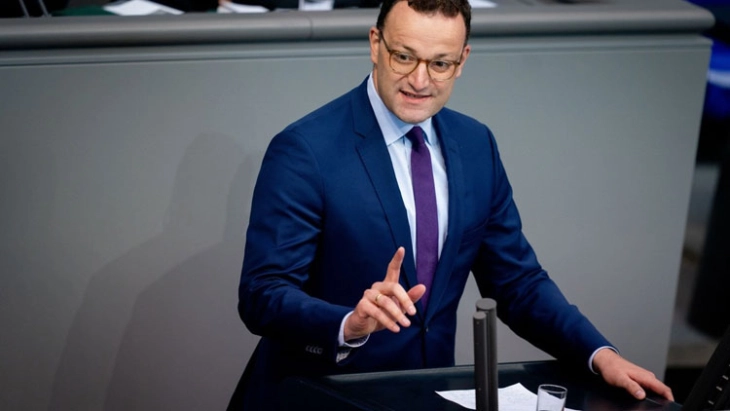Concerns grow over Germany's fourth wave of Covid cases

Berlin, 3 November 2021 (dpa/MIA) - Current levels of infection and hospitalization linked to the coronavirus pandemic prompted concern from German Health Minister Jens Spahn on Wednesday, as parts of the country began tightening controls once more.
"The pandemic is by no means over," he said in Berlin, pointing to a rise in the number of patients in intensive care units in certain regions.
The minister, who is in office in a caretaker capacity as talks proceed to form a new government, was speaking ahead of a meeting of the health ministers of Germany's 16 states planned for Thursday and Friday. German health policy falls largely to the states.
But some states weren't waiting. The southern state of Bavaria said it was reintroducing rules requiring masks in its schools. The government of the state of Hesse set up new testing requirements for people visiting facilities like hospitals or elderly care homes.
Spahn repeated his call for vaccine booster shots, saying the rate of vaccination was too low. All the states should contact residents older than 60 to offer them, he said.
He also noted that people seeking to be vaccinated could not always find a doctor able to do so.
Bavarian Premier Markus Soeder came out strongly in favour of offering a third shot to everyone in Germany. "It makes sense for everyone to take an antibody test," Soeder said after the Bavarian state Cabinet met in Munich on Wednesday.
"In the end, everyone will have to come to a booster vaccination," he added, pointing to evidence from Israel that a third shot could bring large benefits.
Lothar Wieler, president of the Robert Koch Institute (RKI), the official disease control body, warned of a fresh wave of cases in the pandemic.
"If we do not act, this fourth wave will again bring a great deal of suffering. Many people will fall seriously ill and die, and the health services will be under extreme pressure again," Wieler said in Berlin.
Wieler attributed the situation to insufficient vaccination and increasing failure to observe the rules. Pointing to rising deaths, he described the figures as "shocking."
A government spokesperson also called for greater compliance with regulations requiring checks to ensure people are vaccinated, recovered or have tested negative before entering restaurants and pubs, to prevent the spread of infection.
"Some restaurant owners are exemplary while others don't really care, and that enables the virus to spread, of course, extending the pandemic for all of us," said spokesperson Steffen Seibert.
A senior member of the liberal Free Democrats (FDP), Marco Buschmann, cautioned that the current caretaker Cabinet should not attempt to take far-reaching decisions on restrictions without involving the new parliament.
Addressing outgoing Chancellor Angela Merkel directly on Twitter, Buschmann said: "If it is correct that the chancellor would like to impose restrictions on the unvaccinated, she needs with all respect to be reminded that she cannot simply make corona policy as though there had been no election."
Merkel's Christian Democrats (CDU) are expected to go into opposition following the September 26 elections. Their Social Democrat (SPD) partners are negotiating with the Greens and the FDP to form a new coalition government.
While RKI figures have shown a slight decline in recent days, with the seven-day incidence figure hitting 146.6 per 100,000 early on Wednesday, from 153.7 on Tuesday, they are still well up on a week ago, when the figure was 118.0.
Deaths attributed to the virus in the past 24 hours reached 194, from 114 a week ago.







